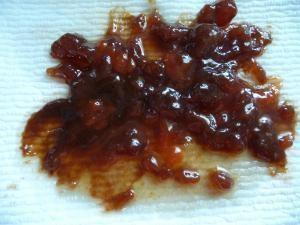Diarrhea: When Does Your Pet Need to See the Vet?

- posted: May 13, 2022
Diarrhea: When Does Your Pet Need to See the Vet?
Diarrhea is one of the most common reasons that pets visit the vet. Diarrhea is messy, uncomfortable and can be caused by many different things—some simple, some serious. Let’s learn more about causes of diarrhea, what you can do to control it and when your pet needs to see the veterinarian.
Diarrhea in dogs and cats can be caused by a host of problems including bacterial or viral infections, food allergies/diet, inflammatory bowel disease, parasites, metabolic changes like hyperthyroidism in cats, toxins, getting into garbage or ingesting foreign material, stress, problems with the pancreas, medications and cancer.
If your pet is not eating, has very dark, tarry looking stools or stool that is very bloody, is lethargic, is also vomiting, looks dehydrated (sunken eyes, dry or tacky gums, skin stays tented up when pinched) has a painful or bloated abdomen or has diarrhea lasting more than 48-72 hours, he or she should visit the veterinarian. Also seek immediate help if you know or suspect your pet has ingested a toxin or foreign object. More serious illnesses may necessitate fluid therapy and other medications to get better. Some pets may also experience a rectal prolapse if they are straining for prolonged periods of time. If pink or red tissue is protruding from the anus, medical attention should be sought as the tissue can dry out and become necrotic.
Your veterinarian may perform diagnostic tests to narrow down the cause of the diarrhea, especially in cases of chronic or recurrent diarrhea. Common tests include a fecal flotation test to check for parasites, blood tests, radiographs (x-rays), or abdominal ultrasound. Your veterinarian may also recommend a specific prescription diet. Treating the underlying disease should help to resolve the diarrhea and some conditions may require lifelong therapy.
Cases of “simple” diarrhea where your pet is acting completely normal, still eating and drinking but having loose bowel movements--sometimes with increased frequency or urgency--can usually be treated at home and should resolve within a few days. Treatment may include feeding small frequent meals of an easy-to-digest diet such as chicken or hamburger mixed with rice, probiotics and anti-diarrheal medications. Check with your vet for appropriate medications and dosages before giving any medications to your pet. Adding a small amount of fiber to your pet’s diet may also help to resolve a case of diarrhea. Canned pumpkin or powdered psyllium such as Metamucil are safe to use and can be added to your pet’s food.
Diarrhea is a common problem in dogs and cats and has various causes ranging from relatively simple to quite serious. Simple cases of diarrhea should resolve on their own in a few days with minimal treatment. If diarrhea is lasting more than 2-3 days, or if your pet seems to be feeling ill, see your veterinarian for proper diagnostic tests and therapies to resolve your pet’s diarrhea.
This blog brought to you by the Patton Veterinary Hospital serving Red Lion, York and the surrounding communities.
Location
Patton Veterinary Hospital
425 E Broadway
Red Lion, PA 17356
